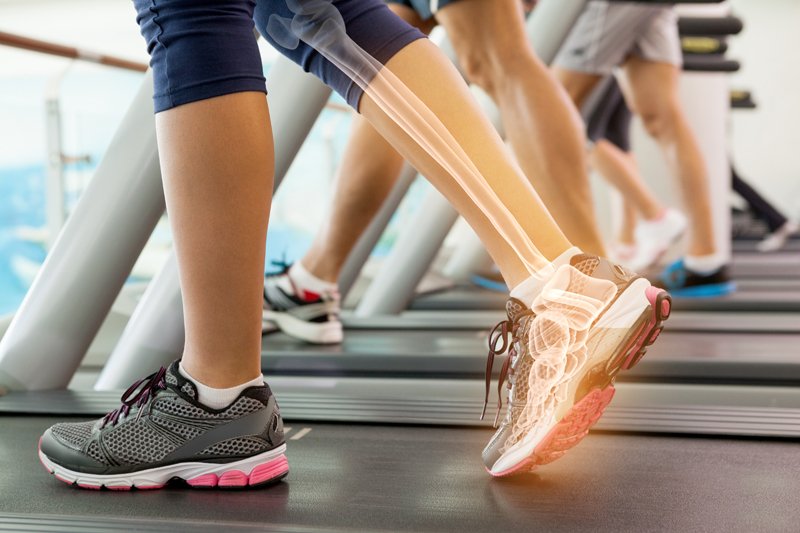How Can I Improve My Bones Health?

Fortunately, there are various ways to improve your bones health, including Vitamin D and Omega-3 fatty acids. Also, you can get involved in an activity that will help build and maintain strong bones. HealthTap brings you the basic health related knowledge, which can help you identify and answer your health queries efficiently These activities include exercise and taking bisphosphonates.
Calcium
Getting enough calcium is essential for healthy bones. Calcium is also important for nerve and muscle tissue health. It plays an important role in the regulation of normal heart rhythms, blood clotting, and muscle function. It also helps maintain healthy teeth.
There are many different ways to get calcium into your diet. Calcium can be found in dairy products, fortified foods, and supplements. The best way to get calcium into your diet is to eat a calcium-rich diet. It’s also important to exercise and participate in weight-bearing activities. This will help you build strong bones.
Vitamin D is important for absorbing calcium. It’s also helpful to eat foods high in vitamin K. These foods include broccoli, Brussels sprouts, collard greens, and kale.
Vitamin D
Taking Vitamin D supplements is widely recommended to prevent bone fractures in older adults. However, the studies examining the effects of supplementation on bone health have had inconsistent results.
Vitamin D is important for strong bones, muscle function and calcium absorption. It is widely available in food sources such as fortified milk, oily fish and certain foods like salmon. It is also abundant in sunlight. However, many people have a low intake of vitamin D. This is a concern particularly in older adults.
Studies have also shown that Vitamin D supplements may improve bone health in immobile elderly individuals. This is important because a person’s risk of fractures increases with age.
Exercise
Whether you are a young person or an older person, exercise is a great way to maintain your bone health. Exercise is also important for preventing falls and fractures. Exercise also helps you to be more coordinated and reduces your stress.
Exercise can also increase your bone density. You can do this by jogging, walking, swimming, dancing, climbing stairs, and playing tennis.
Exercise can also be beneficial for people with osteoporosis. You can also build bone strength through resistance and strength training. Resistance training involves heavy weights that place stress on the bone where muscle attachments are.
Resistance exercise involves lifting weights and performing different movement velocities. It can also be done with elastic bands or medicine balls.
Omega-3 fatty acids
Several studies have demonstrated that the consumption of fish oil supplements may enhance bone health. These supplements contain EPA and DHA, which are polyunsaturated fatty acids. They are important for bone health because they can help to improve bone density and quality. The use of fish oil supplements may also help to improve joint health.
It is known that the immune and skeletal systems share similar molecular pathways. Because the skeletal and immune systems have receptors for fatty acids, the manipulation of the dietary fatty acid profile may help to improve bone health. The effects of dietary fats on bone health have been studied in both humans and animals. Several mechanisms have been proposed for how omega-3 fatty acids affect bone health.
Bisphosphonates
Increasing the amount of osteoclast activity is one way to improve bone health. Bisphosphonates are effective in this process. Bisphosphonates are used to treat osteoporosis. They are also used to treat Paget disease. They also prevent and treat hypercalcemia. They can also be used to treat prostate cancer.
Bisphosphonates are a group of compounds that selectively bind to bone and inhibit bone resorption. They have few side effects and can be used in a wide variety of patients. They can be given orally, as tablets or injections. They can also be used in combination with calcium or vitamin D. The exact dose of bisphosphonates needed will depend on the patient’s medical condition.
Preventing osteoporosis
Taking steps to prevent osteoporosis can help you live a long, healthy life. You can prevent bone loss by eating a balanced diet, getting enough calcium, and engaging in some exercise. You may also be able to reduce your risk of fracture by taking certain medications or supplements.
Osteoporosis is a bone disease that causes thin, brittle bones. Bones become weak and brittle because the body’s production of new bone lags behind the breakdown of old bone. A bone density test can be used to assess bone strength.
Osteoporosis affects more women than men. About one in three women over age 50 has osteoporosis. It’s important to start preventing osteoporosis at an early age.




